January 27, 2017
Edited by David Sanders
Specimen Days
1778—Ugo Foscolo, Italian poet (Ultime lettere di Jacopo Ortis), is born.
1781—Ludwig Joachim "Achim" von Arnim, German poet (Des Knaben Wunderhorn), is born.
1849—Thomas Lovell Beddoes, English poet (Death's Jest-Book), suicide at 45.
1953—Martinus Nijhoff, Dutch poet/interpreter/linguist, dies at 58.
1968—Yvor Winters, American poet (b. 1900), dies.
1991—Johnny van Doorn, Dutch writer/poet, dies at 46.
1992– Okke Jager, Dutch theologist/writer/poet, dies at 63.

To A Young Poet
Here for a few short years
Strengthen affections; meet,
Later, the dull arrears
Of age, and be discreet.
The angry blood burns low.
Some friend of lesser mind
Discerns you not; but so
Your solitude’s defined.
Write little; do it well.
Your knowledge will be such,
At last, as to dispel
What moves you overmuch.
—Yvor Winters
“Write little; do it well.” – Yvor Winters
World Poetry
Russian Poet Faces New Criminal Charges for Poem in Support of Ukraine
Alexander Byvshev is facing another prosecution under Russia’s ‘anti-extremism’ legislation over a poem entitled ‘On Ukraine’s Independence’. A search was carried out on Jan. 17 of the 44-year-old poet’s home in Kromy, the Oryol oblast, with his computer, memory drives, etc. taken away.
Intl. Congress on Persian Poet Bidel Dehlavi Opens in Tehran
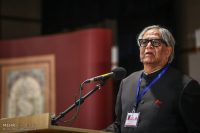
The fourth international congress on Persian poet and mystic Mirza Abdul-Qadir Bidel Dehlavi (1644-1721) opened in the Grand Hall of the Interior Ministry in Tehran on Wednesday. Experts on Bidel and poets from 20 countries are participating in the two-day congress, the Persian service of MNA reported. Bidel Dehlavi was born in Azimabad (present day Patna, India). He mostly wrote ghazals and quatrains in Persian and was the author of 16 books of poetry, which contain nearly 147,000 verses. The Iranian Literature Center director Hadi Kiasari in his brief words called Bidel one of the great literary figures who had found worthy answers for many great questions of mankind.
The fourth international congress on Persian poet and mystic Mirza Abdul-Qadir Bidel Dehlavi opened in Tehran on Wednesday.
Recent Reviews
How Did Rumi Become One of Our Best-Selling Poets?
by Azadeh Moavenijan
Rumi the Aleppo-trained imam, whose sermons beguiled both the orthodox and the subversive of the medieval Islamic world. The theologian who likened writing to sticking his hand in tripe. The abstainer from wealth, who hid in the toilet to avoid the company of princely visitors. The Muslim who prayed toward Mecca five times a day so assiduously that he said, “Whoever looks into my face remembers to pray.” Rumi, one of the best-selling poets in the United States.
Jacob Polley, Jackself
by Joe Carrick-Varty

Jacob Polley’s new book, Jackself, is a collection of story poems, snippets of conversation, thinking and remembering. The poems are unified by the character of Jackself, a shapeshifter who emerges, along with Jeremy Wren and other members of his gang, to surprise the reader across the collection. Jackself is Polley’s fourth collection and in it he leaves behind the five-line-stanza so prevalent in The Brink, or Little Gods, in the hunt for something more abstract and to discover bold and expansive forms.
The Coast Road by Ailbhe Ní Ghearbhuigh review: A bilingual feast
Her translators echo the wit and playfulness of the Irish-language poet’s originals
Nuala Ní Dhomhnaill

This book is a selection, with translations by many hands, from Ailbhe Ní Ghearbhuigh’s previous two collections in Irish, Péacadh and Tost agus Allagar, both published by Coiscéim Press. It is a feast for the eye and the ear and a consolation for the heart. With its excellent, and occasionally multiple, translations, it is also a great example of what can be achieved by the coming together of the two great languages to which this island is heir.
To Write the Larger Scene:Notes on the New Political Lyric
by John Beer
Seen from one angle, the idea of a “political lyric” is an altogether familiar one. From their Western inception, lyric poems, like their dramatic and epic counterparts, had a public role to play, as in Pindar’s celebratory odes. Milton, Wordsworth, and Yeats all composed works that combined reflection on the most fraught public confrontations of their day with the emotional intensity and linguistic compression often considered hallmarks of the lyric genre.
Jacob Polley’s new book, Jackself, is a collection of story poems, snippets of conversation, thinking and remembering.
Broadsides
I’m Nobody’? Not a Chance, Emily Dickinson
by Holland Cotter
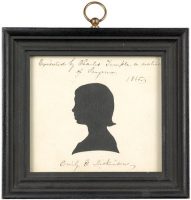
“In the Trumpian sense of the term, she’s the ultimate ‘nasty woman.’ An inspiration. Volcanic. When I start to write about her, I always feel, uh-oh.” The volcano referred to is Emily Dickinson, as described by the contemporary poet Susan Howe in the catalog for an exhibition, “I’m Nobody! Who are you? The Life and Poetry of Emily Dickinson,” opening on Friday at the Morgan Library & Museum.
A Poet’s Tale from Obama’s First Inaugural
by Elizabeth Alexander
This is a story about eight years ago this week. President-elect Barack Obama had asked me to compose and recite a poem for his first Inauguration. It was the fourth time in history that a poet would speak at a Presidential inaugural. I wrote the poem and travelled by train with my family from Cambridge, Massachusetts, to Washington, my home town, to deliver it.
Letter from Beijing: New Poets and New Trends in China
by Ming Di
Chinese New Poetry started as a literary revolution a hundred years ago influenced by the new poetry that appeared in Poetry magazine in Chicago. Hu Shi was a student in the US from 1910 to 1917. He wrote the first Chinese free verse in vernacular speech in July 1916, published “A Tentative Proposal of Literary Reform” in the New Youth journal in China in January 1917, followed by eight free verses in the same journal the next month, and returned to China in July to promote the New Poetry. This literary revolution was preceded by the downfall of the Qing dynasty in 1911 and reinforced by the May Fourth Cultural Movement in 1919. Poets in China today are celebrating 2017 as the one hundred year anniversary of New Poetry. But how do we re-evaluate Hu Shi and the other earlier modernists in China? How do we re-evaluate our New Poetry tradition?
“I’m Nobody! Who are you? The Life and Poetry of Emily Dickinson,” is opening at the Morgan Library & Museum.
Drafts & Fragments
An Inaugural Poem of Protest
by Robert Pinsky

“Robert Pinsky is an American poet, essayist, literary critic, and translator. From 1997 to 2000, he was poet laureate consultant in poetry to the Library of Congress. This poem was originally read at a Writers Resist event hosted by PEN America at the New York Public Library on January 15, 2017. The views expressed here are his.”
Innocent Woman Detained by Police & Ticketed — for Reciting Poetry on the Sidewalk
by Matt Agorist
The state of California has long since waged a war on anyone who dares attempt to make a dollar by performing on the street. While some of these ordinances are in place for public safety, others are outright asinine and are a clear violation of constitutional rights. The latest example of this violation comes out of the city of Palm Springs in which a woman was arrested for reciting impromptu poetry.
Robert Pinsky has written an inaugural poem of protest.
Poetry In the News
Ashley Judd Recites ‘I Am a Nasty Woman’ Poem at Women’s March on Washington
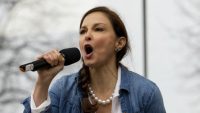
Michael Moore was in for a surprise during the Women’s March on Washington on Saturday when Ashley Judd interrupted him to read a politically charged poem. “I am Ashley Judd,” she declared as Moore reacted in shock, “and I am a feminist.” She proceeded to recite a poem written by a 19-year-old named Nina Donovan from Tennessee.
An Epic American Poem Inspired the Latest Film From Northeast Ohio Native Jim Jarmusch
Northeast Ohio native Jim Jarmusch, an indie writer-director with a long and storied filmmaking career, has said he came up with the idea for the script for his new movie Paterson, which opens on Friday at the Cedar Lee Theatre, more than 20 years ago. He conceived of the movie on a trip to New Jersey city that provides the setting for both his film and for the famous William Carlos Williams poem of the same name. In the poem, the man and city become one. Jarmusch directly references that element of the poem by naming the movie’s central character Paterson.
Minneapolis Poet's Song to Be Performed at Trump's Inauguration — But He's Not A Supporter
As an immigrant, Minneapolis poet Michael Dennis Browne welcomed the chance to provide lyrics for a song to be performed at a presidential inauguration. “Now We Belong” is a tribute to multiculturalism that melds Browne’s lyrics with music by composer John Wykoff of Lee University in Tennessee. It will be performed by the Missouri State University Chorale Friday morning before Donald J. Trump takes the oath of office.
Ashley Judd interrupted Michael Moore during the Women’s March on Washington to recite a poem written by Nina Donovan.
New Books
Aperture by Anna Leahy
[Paperback] Shearsman Books, 88 pp., $17.00
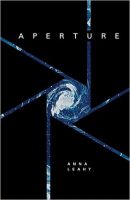
As the title suggests, Aperture opens gaps through which to see and hear the lives of imagined and actual women. This collection becomes a stage on which these women perform, and the poems play with notions of staging, with how we present ourselves and how we are perceived and represented by others. The stories and voices in Aperture "bend and come back again," telling the truth slant
Retribution Binary by Ruth Baumann
[Paperback] Black Lawrence Press, 35 pp., $8.95
A long poem in two parts, RETRIBUTION BINARY is an unearthing of trauma and its many fractures. Baumann explores the psychological and spiritual mayhem of the loss of body ownership, how one both takes that back and can never take it back: "Hands laid on the body lay still in the body. Ghost leeches parasites of rotten wanting." RETRIBUTION BINARY's splinters dig deep, burrowing also into the psyche of the perpetrator. The text at once humanizes and exposes the criminal greed and apathy in him: "If the body is a crime Hell / His lips solemn His head whole / Her age is an appetite.
Unlikely Conditions by Cynthia Arrieu-King and Hillary Gravendyk
[Paperback] 1913 Press, 55 pp., $15.00

A collaborative text by two beloved poets, Cynthia Arrieu–King and the late Hillary Gravendyk, UNLIKELY CONDITIONS, "was written as a way to embellish and perpetuate a friendship." Of her process working with Gravendyk, Arrieu–King says: "We created this book through conversation about what remains important as we get older, jokes, inferences about existence, shared experience, separate experiences melded together, and a hilarious engagement with detail. We had a lot of fun together. This was the experience with all of Hillary's collaborators including her sister Megan Estrella, Maureen Alsop, Colleen Rosenfeld, Brenda Hillman, etc. I'm putting it out in the world because my friend and I had always talked about that as a given and also because I feel Hillary's family and other readers would want to see the beautiful work she did with me, and see a bit more of her intelligent heart and her love for life."
The Rituals of Mummification by Joseph D Reich
[Paperback] Sagging Meniscus Press, 200 pp., $21.00
Poet Joseph Reich writes from a great inner pressure of experience and memory. His senses are open to an America frozen in a forever unconsummated act of rotting; with humor, empathy, and a vast, restless energy, his experience bursts out, capturing the fleeting world in a poetic bubble with an almost painterly repletion, so that for a moment it becomes whole and tangible, authentic both to the outer reality to which it is a touching tribute, and to his own nature.
In Which We See Our Selves: American Ghazals by Eric Torgersen
[Paperback] Mayapple Press, 44 pp., $12.95

"In this fine collection Eric Torgersen's great wit and fine ear turn themselves to the ancient Persian verse form, the Ghazal, and dress it, sometimes hilariously, in American tone and circumstance perfectly fitted to an election year, or any year in our strange and various country. When he writes, 'The house, you'll notice, is on fire again./ We might decide to put out the flame for a change. // Look back. Look down. We're all alone up here./ Let's not forget the way we came for a change,' you realize this is a book anyone can read with pleasure and instantaneous understanding even by those determined not to understand." —Christopher Howell, author of The Crime of Luck
As the title suggests, “Aperture” opens gaps through which to see and hear the lives of imagined and actual women.
Correspondences
The Poetry Interview: Bernard O’Donoghue
by Zaffar Kunial
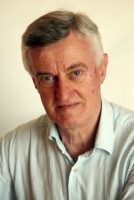
In a new interview series focussed on the poetic practices and influences of poets, Faber New Poet Zaffar Kunial speaks to Bernard O’Donoghue about themes in his most recent poetry collection, The Seasons of Cullen Church, which was recently shortlisted for the 2016 T. S. Eliot Prize for Poetry.
National Treasure: Gary Snyder
by Sean Elder
Shortly after his eighty-fifth birthday, Pulitzer Prize-winning poet, naturalist, and all-around Renaissance man Gary Snyder read from his latest (and possibly last) collection of poems, This Present Moment, as part of the City Arts and Lectures program at San Francisco’s Nourse Theater. He drew an interesting crowd of young techies and older hippies. Actor and activist Peter Coyote, who credits Snyder with introducing him to Zen, asked a question from the front row; Michael McClure, who had read along with Snyder and Allen Ginsberg at the legendary Gallery Six reading in SF in 1955 was there; and California Governor Jerry Brown, who appointed Snyder to the California Arts Council during a previous term, attended both the reading and a small after-party held in the poet’s honor. Shortly after that evening, I spoke to Gary Snyder.
A Century-Old Poet Looks Back — And Fearlessly Forward — In 'Purgatory'

Henry Morgenthau III was in his 90s when he started to write poetry. Morgenthau has had an extraordinarily full life. He's produced award-winning television documentaries, raised children, written a memoir — and yes, his father was the Henry Morgenthau Jr. who was Franklin D. Roosevelt's Treasury Secretary.
Forum: Poetry In a Time of Crisi
East-European Poets Respond to an Ongoing Crisis in Ukraine
How did the war influence your life and your literary work?
Henry Morgenthau III was in his 90s when he started to write poetry.
Envoi: Editor’s Notes
Inaugural Poems: We Mean to Be the People We Meant to Be
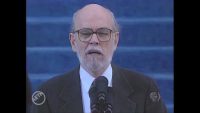
In this week of no inaugural poem, I can't hep thinking of those inaugural poems that have come before. To my mind, the best of them—and I grant that the prospect of writing a public poem is beset with built-in problems even before pen meets paper—was the one delivered for Bill Clinton's second inaugural, written and delivered by Miller Williams. It is not Miller's best poem, but it rises above the other inaugural poems in its self-awareness of the occasion; its own place in history; and its role as a work of art, which would be examined both aurally and on the page by thousands of people with differing levels of appreciation for poetry and differing degrees of expectation for this poem in particular. Its message of hope and responsibility, interwoven with its imagery and dramatic situation, speaks to the time and place with an urgency that the other poems might well have achieved. But the poem includes a sense of perspective that rises above the immediacy of the moment. Here it is, if you want to remember what it looked and sounded like, and here, if you want to read it for yourself.
“We have memorized America, / how it was born and who we have been and where.” – Miller Williams